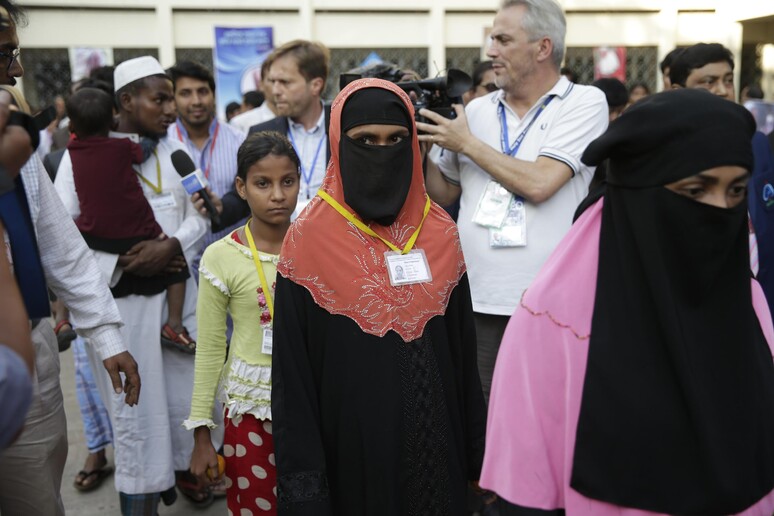Pope Francis told 16 Rohingya
refugees from Myanmar in Dhaka Friday that "the presence of God
today is also called Rohingya," using a word he had studiously
avoided on his recent trip to Myanmar.
It was the first time the pope had used the term Rohingya on
his Asia trip, and he did so in a very strong theological way.
After the meeting with the pope, some of the Rohingyas cried,
witnesses said.
The 16, three families from the Cox Bazar refugee camp, were
12 men and boys, two women and two girls.
The pope caressed the children and shook the hand of one of
the women.
Francis met the group of Rohingyas at the archbishop's palace
in the Bangladeshi capital.
He told them "I ask your forgiveness for the indifference of
the world" to their plight in fleeing brutality and rape in
Myanmar.
Francis said "I am close to you, the situation is very hard".
He also said "let's not turn away" from it.
Some 620,000 Rohingyas, who are Muslims originally from
Bangladesh, have fled there after a campaign of repression that
has spurred a wave of world condemnation, including from the
pope.
But on the advice of the local Catholic Church he avoided
using the term Rohingya on his three-day trip to Myanmar earlier
this week.
Myanmar objects to the term because the Rohingyas are not
among the country's officially recognised minorities.
ALL RIGHTS RESERVED © Copyright ANSA











